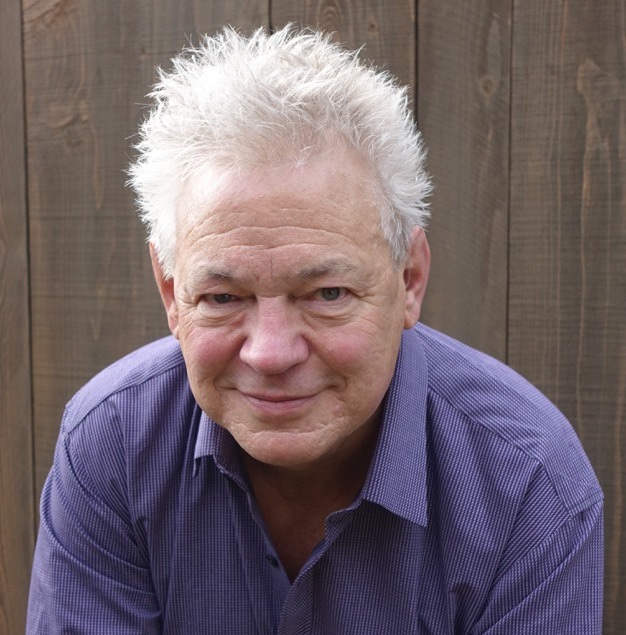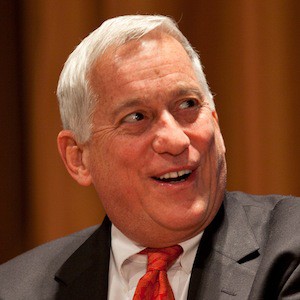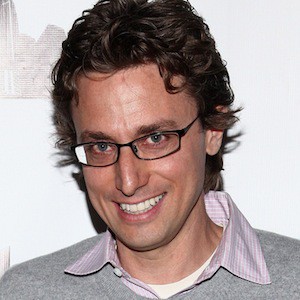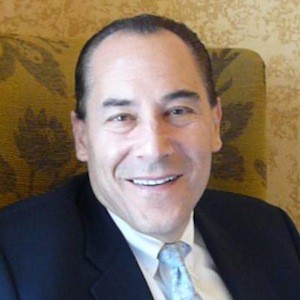John: I’m here in San Mateo with my old colleague, Brent Schlender
and we’re going to talk about journalism and the digital disruption
and the last 20 or so years.
Brent, let me start off by going through the arc of your
career, how you got into journalism, and now into covering
technology.
Brent: OK. Well, it all starts really back in college when I
was…I really didn’t go to school intending to become a
journalist. I studied English Literature primarily. I originally
went because I thought I wanted to be a pediatrician, but did not
do well in chemistry.
Anyway, I just found that literature was easy and I had a
knack for it. That’s what I studied, but one of the things I wanted
to do, as I started getting a little more ambitious about,
“What do you do with literature? You become a professor or you do
research in literature.”
I had this idea of, because I was interested and always had
been interested, in things technological of using computers to
analyze literary style. I decided, “This may just be a completely
stupid idea. I’d better take some computer science.”
I took some computer science courses. I didn’t get a full
minor in it, but I took a lot of computer science courses.
John: You programmed? You did…
Brent: I did Fortran and Basic…not Basic, but Cobol, and designed
databases. That’s what I had a real flare for was relational
databases. This was before Oracle, and even the relational
databases that IBM was selling at that time, but they were teaching
this in universities. This was back in the mid-’70s.
I also had a night job. I was a computer operator — they
called them back then — for a bank in Lawrence, Kansas, where the
University of Kansas is.
Every night from midnight until about four, I would do the
daily processing of all the transactions for four different banks
on those big mainframe computers. I learned how to do that, and got
more familiar with the steps, the infrastructure of
computing back then. All the programming we did was on mainframes
at the university.
It was this arms-length thing that you did when you worked
with computers back then. I understood it. As soon as you take the
programming classes, it ceases to be so intimidating, because you
realize it is a language in a way. But it’s a language of logic
more than a language of words.
If you can define a problem and figure out the steps
required to solve it, that’s what a program is. It’s fun. I like
that kind of mental challenge. I didn’t get anywhere with my idea
of parsing language with it, because I was an undergraduate, and
that would have been for like a Ph.D. program.
I did that, and it was fun. I’d had friends who were
computer geeks, so it was part of my milieu back then. They
weren’t foreign to me.
When I got out of the undergraduate degree, my English
professors, I was very lucky I had some that I got to be pretty
close to. They all said, “You do not want to be a professor. Don’t
be a professor. This is, talk about a dead-end career.”
“You have an outgoing personality, you write fast. You write
nice stuff fast, quickly, so why don’t you go to the journalism
school and get a master’s degree in journalism?”
I said, “Journalism? That’s not an academic, that’s not a
real discipline.” I said, “I’ll think about it,” and I laid off for
a year and ran a Kinko’s in Lawrence.
Then got bored, realized then that I was, no way would I
ever be a decent businessman. I went and enrolled in the Graduate
School of Business. Unfortunately, those old English professors had
friends there, so they paid attention to me when I joined.
Very fortunately, for me, right after, right during the very
first year of what was a two year program, I was picked to be the
summer intern at the Wall Street Journal. They picked, generally
took one person every year from the University of Kansas Journalism
School. I went to Dallas and worked that summer with John Huey and
some other people that were pretty memorable.
That was for just three months, but it was a wonderful
experience because, hey, what did I know about business? I didn’t
know anything about business. But, in fact, I was of the generation
that, business was really kind of evil. I went, “What in the world,
why do I want to do this? Maybe I should write about them as the
enemy.” I don’t know.
But as soon as you get to the Journal, it’s all about
discipline at the Journal, about doing things well, doing them
right and being independent about it. They basically throw you in
the deep end and see if you can swim. That’s the quickest way for
them to find out if you’re going to be able to teach yourself what
you need to learn to write about business, because you have,
basically, it’s learning.
I did OK that first summer. Went back to school and school
was not very much fun after that because it was really kind of a
heady experience to do what they asked us to do.
I don’t know, I went back and hoped that they would say,
“Why don’t you quit graduate school and come to work for us.” I
just didn’t get the call, yet, right away. I continued to do a lot
of work on the side for the Kansas City. It’s called the Star now.
It was the Times. It was the morning bigger paper then. They’ve all
merged.
That was actually a very good experience doing that and
going to school at the same time and just learning more about the
details. Because like I said, I wasn’t, I had not intended to be a
journalist at all. I needed to learn some of the basics, like how
you interview somebody.
Anyway, I was fortunate that I made a good impression during
that internship. The following spring, they had an opening and they
called me up and they said, “Are you willing to drop out of school
and come to work here?” And so I did.
That’s how I got into journalism. A long story.
John: But how did you get, how did you go from, you had the
interest in tech from, obviously, what you said about the
literature, undergrad. How did you go from, we both know at the
Journal there are beats. There wasn’t technology per se in Dallas.
How did you gravitate toward that?
Brent: Well, actually, there was tech, now, too, in Dallas.
John: What?
Brent: Yeah, Dallas was a really good bureau, actually. Dallas was
a great bureau, because it had airlines.
John: Airlines?
Brent: It was responsible for, basically, the home building
industry because there were three or four large, national home
building companies that were based there. The savings and loan
industry was huge in Texas so there was a lot of banking there. A
lot of banking in Texas, too. The oil business was there so we all
had to know about oil. We had to know a lot about oil and gas just
to work there.
On top of all that, there was Texas Instruments, which was
in Dallas, and there’s Tandy Corporation, which was really one of
the first big PC companies in Forth Worth.
Down in San Antonio was an interesting company called Data
Point that was kind of like Digital Equipment Corporation. It was a
mini computer maker, but it also had some early ideas about
possibly making something that’s more like a personal computer.
They also had some corruption in the finance part of that,
which I wrote about. That eventually brought the company down.
In Denver, there was a company called Storage Technology
that was basically the largest manufacturer of what they call
storage subsystems which were basically big, gigantic disc drive
systems or mainframes and mini computers. There were numerous other
technology companies in the southwest.
Nobody in the bureau really wanted to write about the
technology companies because they were intimidated by trying to
understand what the nuances of both the technologies and their
businesses were. Nobody really wanted it. I was very interested in
this because I’d worked on them. I wasn’t scared of writing about
them.
It was still considered a secondary industry in Dallas. My
first real job was to write about airlines, right about the time
that American Airlines moved to Dallas. We had American and
Southwest and something called Texas International. We had Braniff,
which went bankrupt — the very first airline that ever went
bankrupt. I wrote about all this stuff for the first year.
Then I kept saying, “You know, we really need to have
somebody focus on all these tech companies because this stuff is
getting interesting.” Tandy, they started out with leather tooling
kits for people. There’s somebody very intelligent over there who
realized these personal computer type things that are beginning to
emerge…this is like in 1979 when I got there.
Tandy, actually, was the largest maker of personal
computers for a while.
John: TRS80s?
Brent: We didn’t have them in the bureau. We still used Olivetti
typewriters. It’s still typewriters and faxes and teletype
machines. We had a teletype operator that we would write our
stories up and she would punch them and send them to New York. It
was really backward back then.
You can see why people were a little intimidated with this
notion of computing, because they just didn’t have any personal
contact with it. But, it was beginning to bubble up.
I just said, “Somebody’s got to follow this stuff. I think
maybe you ought to have me do it because at least I know what this
stuff is and what it can do, and I think it’s going to be an
interesting business.”
They started asking me to do that, but it still was not
considered a full-time thing, so I was still somewhat responsible
for airlines, although Bill Carley was in New York and he was the
lead airline guy. That was good because then I didn’t have to have
full responsibility. It worked pretty well.
It was during that time I thought, “Gee, I really would
like to get out to California,” because I was aware of Apple, I was
aware of Intel.
While I was working in Dallas, the IBM PC came out, and I
rushed right out the first day to buy one. I bought one at the
local Business Land store there, one of the first in Dallas, and
brought it home. I didn’t know what I was going to do with it,
but I knew I wanted to have one. Again, fooling with it.
So I did.
It was not a really satisfying experience, really, to begin
with. At least, I had it and I could start tinkering with it. I
didn’t even put Microsoft’s operating system in, I put in something
called CPM, which was the other operating system that they put in
there. Just because it was older and a little more proven and there
was a game that I wanted to play that was available for CPM. I did
that.
Then everybody thought, “Man, he’s a real geek.” I
programmed it to when I was out of town, because I traveled a lot
for the Journal, I programmed it to have a screen flash, “Alarm
System Armed, Alarm System Armed,” because we had problems in my
neighborhood with burglars.
Funniest thing that happened was about a year later, they
had assigned me, I started writing about Central America because it
was something everybody in Dallas, if they stayed there long
enough, would cycle through and get their first taste of being a
foreign correspondent.
That went really well for me. I did that for a while. It
was completely different from high tech, but it was really
fascinating and interesting. It was where I met my wife. She’s from
Nicaragua.
At any rate, I would go on those trips down there. I got
burglarized once when I was in Central America, and they stole my
suits, they stole my microwave oven, they stole my stereo and my
speakers, they stole my underwear, but they left the computer.
John: That was then.
Brent: Yeah, that was then. That just shows that, yeah, maybe I
was a little ahead of my time thinking that that was valuable.
At any rate, I wrote a lot about high tech stuff. I met
Jack Kilby, the other inventor of the microchip. I bet both of
them, Robert Noyce, out here. They both had tremendous respect for
each other. It’s kind of like Charles Darwin, and I can’t remember
the name of the other guy. Two people who came up with the same
idea at the same time. These guys were much more dignified toward
each other and respectful.
I just knew that if I’m going to write about business this
probably would be the best thing for me because I understand this
stuff far better than most people in journalism. I didn’t know
anything about trade magazines. I’m sure they were full of people
who knew a lot about it. In the mainstream, national publications
nobody knew much of anything about it. I knew there was an
opportunity here.
However, I liked this foreign correspondence stuff. I was
hoping to move with you guys over to Europe.
John: Over to Brussels, yeah.
Brent: For some reason, I will never know the real back story
behind this because I was told, “Yeah, that’s a real possibility,”
and then suddenly I get a call that said, “Would you like to move
to Hong Kong?” This was like wow.
We’d just gotten married, literally. The day I found this
out my wife found out she was pregnant. I didn’t know how to say
no. I said, “I guess Europe’s out, huh?” “No, the job we’re
offering you. Why don’t you take this one?”
She comes home, finds out the pregnancy test she’s
pregnant. Well, we’re moving to Hong Kong.
John: When it rains it pours.
Brent: The state of mind we would have been in if we had moved
there without her being pregnant is we would have loved it because
we would have rambled all over Asia and explored it all and seen it
all. Imagine showing up in Hong Kong having morning sickness.
That’s what she dealt with. It was a little tough, and it wasn’t
quite what we had in mind.
Still, great experience. After a year and a half, I could
tell this is not really working. This is not as interesting a job
as what I had before. Then we had a management change over there,
and I didn’t really particularly like the new boss. I just started
making noise to people I knew back in the US.
They moved me first to Los Angeles, basically put me in a
holding pattern to get me into San Francisco because everyone knew
that’s what I wanted to do. Everyone knew I knew about computers,
and it was really beginning to heat up there.
The problem was they had a management change there, too, so
that had to be sorted out. Anyway, I was in LA for 11 months, and
then they moved us up here. From then on, I was the guy that wrote
about Silicon Valley. Now they have 7 or 11 or I can’t remember how
many people. It was just me for three or four years.
It was exhausting because everything was exploding back
then. This was 1985 through 1989. This is when Bill Gates became a
billionaire, this is when Steve Jobs was kicked out of Apple, this
is when Intel basically crushed the rest of the semiconductor
industry, this is when there was this great fear that Japanese
semiconductor makers were going to wipe out all the memory chip
makers.
IBM was tangling with Bill Gates. AT&T was a big player
in computing back then, too. Sun Microsystems emerged. All these
things happened. Sun was the company that got to a billion dollars
in revenue faster than any other industrial company in history.
That happened during this period of time.
All these things were happening. It was just like spot
news, all tech, all day long, every week. I didn’t have time to
write very many feature stories.
John: Tell me this, in the midst of all that going on in the late
’80s and late ’90s, was there a eureka moment for you in the sense
that the world of tomorrow is going to be different than the world
of today?
Brent: That? I had that long before.
John: Long before that?
Brent: Yeah, that was really when IBM PC came out when I realized.
I had been paying attention to what Tandy had done and was very
interested in personal computers. I’d read about Apple. I didn’t
have an Apple computer. The Mac wasn’t out yet. It was the Apple II
had just come out in ’79. This is about the time I went to work
there. I just hadn’t gotten around to buying one.
Then I heard about the IBM one. Typical me, I just waited
for that. Instantly, I could tell that there’s so much investment
going into this. I learned enough about business by then to
recognize an up and coming business when I saw one. I understood
the dynamics of Moore’s Law very early and was fascinated by the
escalator effect of that very, very early.
John: Did you think that escalator effect would also transform
society as a whole that quickly?
Brent: All you had to do was look at the numbers. It was doubling
every 18 months. That’s exponential growth. That means in five
years, it’s 20 times bigger. It’s 20 times the performance. That
means it costs 1/20th. What costs a dollar costs a nickel in four
years. This is a different kind of economic phenomenon than we’ve
ever seen.
Journalism beat that much basic economics into me that I
understood that and I thought, “There’s something that’s going to
happen here.”
The other thing that was going on…and this is something
that I’ve actually written about obliquely a lot since way back
then. It was basically the beneficiary of technology generally
starts — because it’s so expensive, at least to first develop it –
– starts with the government or the military.
They’re the only ones that can afford something that’s been
invented that’s truly new and costs a lot to make. If there is a
predictable reduction in cost, it inevitably will move from there
to big business, from there to medium sized business and smaller
business, and from there to being within the means of consumers if
it can be designed into a product that made sense to consumers.
That’s a different kind of ingenuity to figure out what is
appropriate for each of these levels. It’s hard. That,
conceptually, is as hard as it is to make the technology improve
like that, to figure out how to put it to use. That, to me, was
fascinating, figuring out how you can put these chips to use doing
something other than guiding a missile.
Once companies had these big mainframes, then they needed
to start rethinking how they do their accounting and how they count
stuff. Then, after a while, they began to look at the data, and
they could see trends and dynamics in their business that they
could never see before. That, in turn, changes the businesses and
the way they work. That’s fascinating to me, too.
John: Did you see it potentially affecting the way of journalism,
the way you tell stories? The craft that you were practicing, did
you see it as potentially changing that, too?
Brent: What I knew was I couldn’t wait to get better tools that
these guys are making so it’s a very selfish thing. I remember when
I was in Central America I finally got this little Tandy…
John: TRS80.
Brent: …portable — yeah, trash 80 — little thing with a cup
modem thing that even worked down there. Until then, I had to stay
up until 1:00 in the morning to use the hotel’s teletype machine to
punch a tape to send a story in all capital letters to New York.
Only after I got that was I able to just…I wasn’t able to
print it out because we didn’t have printers, but I was able to
write something on this little computer, stay in my room, stick the
cups on the phone, dial it up, and send it in, and it was in much
cleaner form and easier and quicker for the editors to deal with.
It was a revelation to do that. Because of my inclination,
I pushed it far more, probably, than anybody at the journal
initially because it was perfect and I wasn’t afraid of it. It
didn’t surprise me a bit that after the PC came along — even after
Apple II — but mostly after the PC came along because publishers
began to think, “Maybe I need to experiment with these.” A lot of
publications would have people that were intrigued by this and
could see there was potential here.
Back then, too, especially in magazines, it was a little
different. They had dedicated computer systems before newspapers
did because the frequency of publication. It was easier to design a
technology that replicated what they did. As I used to tell people,
our deadlines are on the calendar not on the watch. They were
actually a little bit ahead with computers but not with personal
computers.
Newspapers were the ones that really jumped on personal
computers. Once that happened and journalists started using it, I
think that made a big difference because it made people who worked
for newspapers, they were actually customers of these companies.
They were PC users. They were amongst the very first PC users that
pushed them hard and that relied upon them.
I remember when we got them at the journal and got these
weird AT&T things with an orange screen, which I liked. I
thought the orange screen was nice. I just remember we didn’t have
those at the Kansas City paper when I was working there. We didn’t
have anything remotely like that. It was just IBM Selectrics there.
Once you become a consumer of the technology, it makes you
more interested in it. In fact, I think it’s created, in some ways,
blind spots for a lot of journalists because they’re so caught up
in what the technology will do for them that they lose sight of the
bigger picture. All they care about stuff that they can use. What
was really going on was far broader and more systemic than just
journalists getting better tools.
There was a groundswell of interest in personal computers
as soon as journalists were using them themselves. They looked at
them as a consumer would look at them or as a user would look at
them. That was a really good thing because it demystified things
more quickly. You just heard about it more.
It’s both good and bad. I think they lost sight of the
larger industry or the larger potential and where it really was
going to be leading because they’re so caught up in what it does
for them, but it still was good.
John: To a great extent, at that point, you were the ideal
journalists covering tech. They were the focus of these companies,
in a way, because you got their message out. Not you personally,
but people covering tech got their message out.
Brent: I was fascinated by the game they were playing. I was just
as fascinated by how do you make this stuff. It’s an ongoing race
and you have to eat your own young. This incredible metabolism that
this business has to have because of that escalator effect.
For me, it meant there’s a perpetual motion machine so
there’s always something to write about because something’s always
changing. It’s not like Wrigley’s gum. They still make spearmint,
they still make juicy fruit and they made it 120 years ago.
John: This was change or die.
Brent: Yeah, and it’s eat your young, too. It took a different
kind of personality. There was a certain revolutionary aspect to
it, especially the personal computer stuff as they were beginning
to drive this into the hands of individuals. Jobs, in particular,
was able to capture the zeitgeist of that in that famous Apple 1984
ad. It really drove home the point that Apple’s trying to put the
power of computing into the hands of the individual.
It was a
zeitgeist message and it was important. But what Bill Gates recognized
is that this architecture that he had come up with that was
standardized between his software and Intel’s microprocessor chips
could subsume anything that anybody ever called a computer before.
It was a much bigger ambition. It could do what super computers did
if you designed it right. It could do what mainframes did.
That’s where the money was. If you could standardize it,
you could make the escalator effect move even faster. Nobody’s
wasting money on product development. We’re all building the same
thing. Gates caught on to the real business potential of this
escalator effect if you could standardize it.
Jobs just missed this. He was so idealistic about putting
great tools in the hands of individuals that he just missed it,
missed that part.
John: Here you are. You’re caught in this. You and your
colleagues are caught in this ever-evolving, faster paced world.
You’re both fascinated and seduced. How did you keep your
skepticism?
Brent: How do I…?
John: How do you keep your skepticism?
Brent: That’s a good question. Skepticism. It isn’t that much
skepticism because these people really were trying to invent the
future, basically. They were trying to design a business that
didn’t yet exist and trying to design the infrastructure for things
that don’t yet happen. In a sense, they live in the future. What’s
here and now isn’t relevant. What they’re working on is what they
hope will be here.
Yeah, it doesn’t exist, but it’s what they want to make.
It’s really easy to maybe exaggerate a little bit where you’re
going to be by here. John Sculley was a perfect example of this, of
somebody who got so caught up in the vision-thing that he was
describing absurd things. Whereas others made promises they
couldn’t keep, not quite like that, not like Sculley’s pie-in-the
-sky scenarios.
They would promise more than they could deliver. There are
a lot of great sayings in Silicon Valley. One is “Don’t mistake a
clear view for a short distance.” You can imagine what this will
do, what this technology will do, when the chips can do this and
the disc drives can hold this much and it costs this much. Each one
of those things has to happen before you can put it all together.
Then you’ve got to make sure it doesn’t break something
that you already have that you’re relying upon. There’s all this
backward compatibility stuff that you have to preserve if you don’t
want to harm your existing customers.
John: Here are two questions. They’re linked questions. I’ll ask
the first one first. One of the changes you’ve lived through in
covering tech and covering the Valley and covering this transition
is the difference between you and your audience, the distance
between you and your audience. When you start off, every once in a
while a letter would come in the mail from some reader asking X.
We came in through email at one point asking X. It was a
closer connection. Now you’re on networks asking X. How has that
changed your job?
Brent: I’m not as good a person to ask about that because ever
since I lost my hearing almost 10 years ago I haven’t been as
active in journalism. I’ve written a few big things and I tried
writing some columns for a while, but it’s a handicap that’s hard
to deal with as a typical journalist. I’ve just found other ways to
do what I do that aren’t so time sensitive and aren’t tied to a big
publication so much.
I don’t know. I always took criticism or comments from
readers really seriously, because in the early days, they had to
work to get it to us. It’s just like my mother’s handwritten
letters were special. My dad now since email…and they’re really
special, too, because I never dreamed he would learn to use email
because he’s 90 so that’s a bad example. As it’s gotten more
immediate, it’s gotten — I don’t know how to say this — it
becomes more noisy, more like noise.
What’s really changed isn’t so much the medium of whether
it’s email or written letter or a postcard or a text or that.
What’s changed is that the people who write to you are playing to
the audience, too. They’re playing to your audience and they’re
trying to use their comments about what you say or their criticisms
of you to try to talk to your audience, too.
There’s a certain amount of grandstanding to it that makes
it less personally meaningful as interpersonal communications. It’s
just showing off a lot.
In a way, I can understand it because why are we so lucky
to be the ones that get the ink? Hopefully, we earned it. What do
they do to have the right to comment to it? Nothing. They just
submitted something. They didn’t even have to put their name on it.
It cheapens the quality of the communication. That I don’t
like and I keep telling people maybe I’m just too old for this
because I don’t have thick enough skin to just ignore that. It
bothers me. I don’t like it.
On the other hand, I realize that it’s being a prima donna
to say that I’m the only one that has the soapbox. I don’t know.
There’s a cultural change that’s happened, too.
John: Another of the changes, you might say, is in the
relationship between technology companies and journalists. At one
point, the journalists who covered tech were the main pipeline to
the wider audience. Now, to some people they’re feeling
disintermediated, that they’re bypassed. They’re going direct to
the audience and not through the journalist.
Brent: I think it depends on who the audience is. One of the
reasons it was so great to work for the Wall Street Journal or
Fortune is that we were considered to be a pipeline of information
to the investing public. Public corporations, the most important
thing for them is to create a good impression of the prospects as
an investment vehicle.
Of course, they wanted to talk to us because other
investors tended to read our publications. The thing is that
technology back when I started, those are the customers, too. The
customers were the corporations. Even after the first big surge of
personal computing, it very quickly became clear that it was
corporations that were buying most of the PCs.
The personal computer — the P stands for personal — was
really just a tiny fraction of the overall market. This really
accelerated over time up until about 2000. Basically, the PC
architecture insinuated itself into every kind of computing you
could think of — ATMs, cash register, factory floors, every
airline in the world uses PCs for booking reservations. That’s
where the numbers were.
When people talk about the 750 million PCs operating out
there in the US, that’s where they are, most of them. But this is
where things began to change around 2000. As the consumer became a
more profound component of the purchasing power for what we call
technology, the dynamics of everything changed. Now, it’s more
important to sell to people and have them buy your stuff than to
drive your stock price.
What you really need is you need to ride this incredible
potential growth curve that this shift from 25 million potential
customers with corporations to 6 billion people. There’s a huge
curve ahead there. The more you begin to sell to that, it doesn’t
matter. It’s going to grow so fast that your stock is going to take
care of itself. They don’t have to care about investors so much.
What they really care about is winning the word of mouth
war so that if there’s going to be another equivalent of a PC
standard set that they get it so that they can ride that escalator.
It’s a different game. Where the money comes from is now consumers
for a lot of these things. Not all of it, but for a lot of it.
When the volume hits a certain point, that’s what drives
how the component suppliers define their business. Then what we’re
having, instead of having the US Air Force pushing the leading edge
of technology we’re having smart phone users, and that’s what’s
driving really big advances in things. Now, it’s different, very,
very, very, very different.
I’ve talked to Bill Gates about this. What’s going to
happen when Moore’s Law flames out and we really do hit the
smallest feature size possible and the escalator just stops? He
says, “I don’t like to think about that.”
John: Let me get this.
Brent: Oh, thanks. That’s what we’ve seen here. It’s happened a
few times in history where something comes along that has a
multiplicative effect economically in really broad ways. Steam
power was one of them. Domesticated plants and animals was one of
them. There aren’t that many, but every once in a while one hits.
It pushes both humanity and the economic creative power forward in
huge surges.
Then, at a certain point, it hits its limit and then
something else has to come along.
John: Let’s step back a minute. You were in the midst of the
scrum. How do you think journalism at large did at covering this?
Brent: I don’t know. Like I said a while back, one of the problems
is that it’s just too easy to think of…As things get more
consumer-like, the product gets more consumer-like, it gets easier
and easier to get caught up in what it does for you personally.
That makes it hard for you to be very objective about what this
really means either as a technology or as a business ploy or
whatever.
You’re just so caught up. You want that sapphire glass
screen so bad that if it doesn’t have it, this phone sucks. That’s
not a service to people for you to tell them what you want. It’s
more of a service for you to tell them what is possible. Why is it
possible? Why is it not possible? What’s a reasonable thing to
expect here? Why is there resistance against adding this kind of
capability to this? Why is Google dangerous? Why does Facebook feel
it’s OK to conduct psychological experiments on their users?
Things like that are easy to just not ask because you’re
really more concerned about what you can do with it. That happens a
lot, more with the hardware stuff than the software.
My biggest issue right now is it’s the cacophony factor.
There are so many voices out there, and there’s an echo chamber
effect, too. It’s like this cacophonous echo chamber.
Everybody wants to try to say something every day of
significance when, as fast as things move…it doesn’t move that
fast. There are certain watersheds and milestones. Like Steve Jobs
used to say, you can only connect the dots in hindsight. If you’re
smart, you might connect them going forward but even Steve didn’t
claim to do that.
Sometimes you just have to let things play out to really
fully grasp what they mean when they get out there into the hands
of the people that actually use them. It’s very easy to criticize
impulsively and there’s a lot of pressure for people to
make judgments and statements because they have to make something
newsworthy, there has to be some newsworthiness.
John: Yeah.
Brent: To me, it gets to be noise and that’s the one thing I
regret a little bit about it because it’s hard to stand out in that
noise and help people see something.
I remember, at Fortune, one of the things we always talked
about was what really is our purpose? It was a magazine, we don’t
come out every day. We had a website, but we’re not very good at
that.
I always would argue, I said, “We’re supposed to do one of
two things. We’re supposed to tell people either how we got here or
where it’s likely that we’re going. This point is either an
endpoint or a beginning point.”
That’s what we did. That’s our service to people, to give
them some sense of how we got here and that there may be lessons
for the future from that, or maybe it’s just a good story. Looking
forward, you’ve got to be careful about that, because we don’t
know.
That’s why I’d much rather write the how-we-got-here story,
than predict, because you can always get egg on your face if you
predict.
John: One last question. Given that about this point, looking
forward, looking back, I’m going to ask with all the noise out
there, are you optimistic or pessimistic about journalism as a
craft going forward?
Brent: I’m both. There’s more opportunity for people to express
themselves than ever before. But, it’s harder to find an audience,
a significant audience than it’s ever been before. It’s hard for
established brands just to hang onto their volume.
It is really splintered. I guess that means you don’t have
as much power as before. That’s regrettable if you’ve had power and
you’re used to it. What I worry about is we live in this winner-
take-all-world now. It seems like.
In a way, Microsoft set the tone for this with the PC
standard. And it has become considered to be conventional wisdom now
that there can only be one big winner. That’s what every struggle
is for and that is going to be true in most industries. It’s true
in Hollywood, and in pop culture, and music. It seems true.
I don’t think it’s true. But, I think it’s a little scary
to think that all you can do is win or lose, and then there are
only a few winners. That worries me a little bit.
I like the way it was, best, probably in the ’90s, when
things were still, in journalism I’m talking about now, where we
were still feeling our way into what this was going to be and what
it’s going to be like, because you have tremendous potential. It’s
wonderful. I use it all day long.
I still don’t think it’s found its legs yet, completely. I
thought print was really good back then and kind ofreached its zenith.
I look at TV now, and TV to me is, I’m talking about
dramatic TV, it’s the golden age for television now. There is
better storytelling on TV than in the movie theaters. It’s a
different kind of storytelling. They’ve finally figured it out
that a TV series is an incredibly rich medium to build high-quality
digital drama.
It really is. You can develop characters. You can do things
you can’t do in movies. It’s wonderful.
I hope something like that happens with this digital media
because words are still important and people still like to
communicate in words. Writing is really good because it nails down
ideas. It doesn’t freeze them, but it gets them down so you can
hold them and examine them.
John: Tangible.
Brent: Yeah, and it’s an important thing. That’s better than just
looking at a clip, oh isn’t this drawing cool.
The world is a complicated place and sometimes words are
the only way you can understand it.
John: Yeah. Excellent. That’s a perfect endpoint because that’s
where we all began, words.
Brent: Yeah. I’m not that pessimistic. I just think it’s going to
take a little while for…and it’s going to be people younger than
me who figure this out because it’s going to take some time and
they’re going to have build their own reputations. I was really
lucky. It was like nobody quite knew this was going to be like
this. I was very lucky too, in that I worked at a time when people
who were really significant only had to deal with maybe a half a
dozen publications.
If you could build a good relationship with one of these
key people, it would pay off in much better stories and you build
trust, you build a personal relationship. Not that you’re trying to
satisfy them but that they know you’re going to be fair. Its not gotcha journalism.That was what I’m most proud of is
being able to build these one-on-one relationships, where there’s
mutual respect.
We both recognize what our jobs are and they respect what
we’re trying to do and we respect what they’re trying to do. That’s
harder to do when you never meet them.
John: Yeah. Absolutely right. Well, excellent. Thank you very
much.










